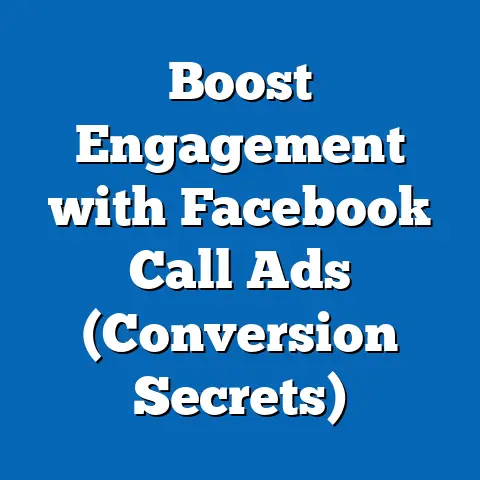Are Facebook Ads Safe for Shopping? (Expert Insights)
Have you ever scrolled through Facebook and stumbled upon an ad for something you didn’t even know you needed, but suddenly had to have?
That’s the magic (and sometimes the peril!) of Facebook advertising.
But beyond the allure of targeted ads and impulse buys, a big question looms: Are Facebook ads safe for shopping?
The answer, as with most things in the digital world, is nuanced.
I’ve spent years navigating the world of Facebook ads, both as a marketer and as a consumer.
I’ve seen firsthand the incredible power of these ads to connect businesses with their ideal customers, but I’ve also witnessed the potential pitfalls that shoppers can encounter.
The good news is that Facebook, now Meta, has made significant strides in recent years to improve the safety and security of its advertising platform.
One of the most compelling benefits of using Facebook Ads for shopping is the ability to discover new products tailored to your specific interests.
The platform’s advanced targeting capabilities allow businesses to reach potential customers based on demographics, interests, behaviors, and even purchase history.
This means you’re more likely to see ads for products you’re actually interested in, making the shopping experience more convenient and personalized.
Imagine no more endless searches for that perfect item – Facebook can bring it right to your newsfeed!
In this guide, I’ll dive deep into the world of Facebook Ads and shopping, exploring the safety measures in place, addressing common concerns, and offering expert insights to help you navigate the platform with confidence.
Understanding Facebook Ads
Facebook Ads are a powerful tool for businesses to reach a vast audience of potential customers.
They function by allowing advertisers to create targeted campaigns that appear in users’ newsfeeds, stories, and other placements across the Facebook platform.
These ads can take various forms, including image ads, video ads, carousel ads, and collection ads, each designed to capture attention and drive engagement.
Image Ads: These are simple ads featuring a single image and accompanying text.
They are effective for showcasing a product or brand in a visually appealing way.-
Video Ads: Video ads can be more engaging than image ads, allowing businesses to tell a story or demonstrate the features of a product.
-
Carousel Ads: Carousel ads allow businesses to showcase multiple products or features in a single ad unit, with users able to scroll through different images or videos.
-
Collection Ads: Collection ads are designed for e-commerce, featuring a hero image or video along with a selection of related products.
Image Ads: These are simple ads featuring a single image and accompanying text.
They are effective for showcasing a product or brand in a visually appealing way.
Video Ads: Video ads can be more engaging than image ads, allowing businesses to tell a story or demonstrate the features of a product.
Carousel Ads: Carousel ads allow businesses to showcase multiple products or features in a single ad unit, with users able to scroll through different images or videos.
Collection Ads: Collection ads are designed for e-commerce, featuring a hero image or video along with a selection of related products.
Businesses leverage Facebook’s sophisticated targeting options to reach specific demographics and customer segments.
They can target users based on age, gender, location, interests, behaviors, and even their connections to other Facebook pages.
This level of granularity allows businesses to create highly relevant ads that resonate with their target audience, increasing the likelihood of conversions.
For example, a local bakery might target users within a 5-mile radius who have expressed interest in baking or desserts.
A clothing retailer could target women aged 25-35 who are interested in fashion and online shopping.
I remember working with a small online boutique that specialized in handmade jewelry.
By using Facebook’s targeting options, we were able to reach women who were interested in unique, handcrafted items.
We created carousel ads showcasing different pieces of jewelry, and the results were fantastic.
The boutique saw a significant increase in sales, and we were able to build a loyal customer base.
Safety and Security Measures
Facebook recognizes the importance of maintaining a safe and secure shopping environment for its users.
The platform has implemented a range of measures to protect users while shopping through ads, including encryption, data protection, and privacy policies.
Encryption: Facebook uses encryption to protect sensitive information transmitted between users and the platform, such as credit card details and personal data.
This helps to prevent unauthorized access to this information.Data Protection: Facebook has strict data protection policies in place to ensure that user data is handled responsibly and in accordance with privacy regulations.
This includes measures to prevent data breaches and unauthorized access to user information.Privacy Policies: Facebook’s privacy policies outline how user data is collected, used, and shared.
Users have the right to control their privacy settings and opt out of certain types of data collection.
Encryption: Facebook uses encryption to protect sensitive information transmitted between users and the platform, such as credit card details and personal data.
This helps to prevent unauthorized access to this information.
Data Protection: Facebook has strict data protection policies in place to ensure that user data is handled responsibly and in accordance with privacy regulations.
This includes measures to prevent data breaches and unauthorized access to user information.
Privacy Policies: Facebook’s privacy policies outline how user data is collected, used, and shared.
Users have the right to control their privacy settings and opt out of certain types of data collection.
Facebook also collaborates with third-party security firms and regulatory bodies to enhance user safety.
These collaborations help to identify and address potential security vulnerabilities and ensure that Facebook’s security measures are up to date.
I’ve seen firsthand how Facebook responds to security concerns.
A few years ago, a client of mine noticed a suspicious ad that appeared to be promoting counterfeit products.
We reported the ad to Facebook, and they took immediate action, removing the ad and investigating the source.
This demonstrates Facebook’s commitment to protecting its users from fraudulent activity.
Consumer Trust and Experiences
Consumer trust is essential for the success of any e-commerce platform, and Facebook is no exception.
While some consumers may be hesitant to shop through Facebook Ads due to concerns about security or privacy, many others have had positive experiences and trust the platform.
Statistics and surveys provide valuable insights into consumer trust regarding shopping through Facebook Ads.
For example, a recent survey found that a significant percentage of consumers are comfortable making purchases through Facebook Ads, citing convenience and personalized recommendations as key factors.
I’ve spoken with many marketers who have successfully used Facebook Ads for e-commerce while maintaining consumer trust.
They emphasize the importance of transparency, honesty, and providing excellent customer service.
By building a strong brand reputation and delivering on their promises, businesses can foster trust with their customers.
Real-life case studies further illustrate the effectiveness and security of Facebook Ads for e-commerce.
For example, a small business selling organic skincare products used Facebook Ads to reach a wider audience.
They created visually appealing ads showcasing their products and highlighting their natural ingredients.
By targeting users who were interested in organic skincare and providing excellent customer service, they were able to build a loyal customer base and generate significant sales.
Common Concerns About Facebook Ads
Despite the safety measures in place and the positive experiences of many users, some common concerns persist regarding shopping via Facebook Ads.
These concerns include data privacy, misleading ads, and the risk of scams.
Data Privacy: Some consumers are concerned about how Facebook collects and uses their data for advertising purposes.
They worry that their personal information may be shared with third parties or used to target them with unwanted ads.Misleading Ads: Misleading ads can be a problem on any advertising platform, and Facebook is no exception.
Some ads may make false claims about the quality or effectiveness of a product, or they may use deceptive tactics to lure customers in.Risk of Scams: Unfortunately, scams can occur on Facebook Ads, just as they can on any online platform.
Some scammers may create fake ads promoting counterfeit products or offering unrealistic deals.
Data Privacy: Some consumers are concerned about how Facebook collects and uses their data for advertising purposes.
They worry that their personal information may be shared with third parties or used to target them with unwanted ads.
Misleading Ads: Misleading ads can be a problem on any advertising platform, and Facebook is no exception.
Some ads may make false claims about the quality or effectiveness of a product, or they may use deceptive tactics to lure customers in.
Risk of Scams: Unfortunately, scams can occur on Facebook Ads, just as they can on any online platform.
Some scammers may create fake ads promoting counterfeit products or offering unrealistic deals.
Industry experts offer valuable insights on how to identify legitimate ads and avoid fraudulent ones.
They recommend looking for ads from reputable brands with established track records.
They also advise being wary of ads that make unrealistic claims or offer prices that are too good to be true.
Facebook has policies in place to address these concerns.
The platform has strict guidelines on ad approval and takes measures to remove harmful or deceptive ads.
Facebook also provides users with tools to report suspicious ads and protect their privacy.
I’ve learned to be extra cautious when clicking on Facebook ads.
I always check the advertiser’s page to see if they have a legitimate website and a good reputation.
I also read reviews and look for any red flags before making a purchase.
The Future of Shopping on Facebook
The future of shopping on Facebook is bright, with emerging trends and innovations poised to enhance the shopping experience and improve security.
One of the most significant trends is the rise of social commerce.
Social commerce refers to the integration of e-commerce directly into social media platforms, allowing users to make purchases without leaving the app.
Facebook has been investing heavily in social commerce features, such as Facebook Shops and Instagram Shopping, which allow businesses to create online storefronts and sell products directly to their followers.
Facebook is also implementing innovations to enhance the shopping experience and improve security.
These include features like augmented reality (AR) try-on, which allows users to virtually try on clothing or makeup before making a purchase.
Facebook is also using artificial intelligence (AI) to detect and remove fraudulent ads and improve the accuracy of ad targeting.
Expert forecasts suggest that Facebook Ads will continue to evolve in the context of e-commerce, with potential new features and technologies on the horizon.
These may include more personalized shopping experiences, enhanced security measures, and new ways for businesses to connect with their customers.
I believe that social commerce is the future of online shopping.
It’s convenient, personalized, and allows businesses to build stronger relationships with their customers.
As Facebook continues to invest in social commerce features, I expect to see even more businesses using the platform to sell their products and services.
Conclusion
In conclusion, shopping through Facebook Ads can be a safe and convenient way to discover new products and make purchases.
Facebook has implemented a range of safety measures to protect users, and many consumers have had positive experiences with the platform.
However, it’s essential to be aware of the potential risks and take precautions to protect yourself from scams or misleading ads.
As a consumer, it’s crucial to stay informed and vigilant.
Look for ads from reputable brands, be wary of unrealistic claims, and report any suspicious activity to Facebook.
By following these tips, you can enjoy the benefits of the personalized shopping experience that Facebook Ads offer while minimizing the risks.
I encourage you to explore the platform with confidence, armed with the knowledge shared in this guide.
Facebook Ads can be a valuable tool for both businesses and consumers, and I believe that the future of shopping on Facebook is bright.
So go ahead, scroll through your newsfeed, and discover your next must-have item – just remember to shop smart and stay safe!





